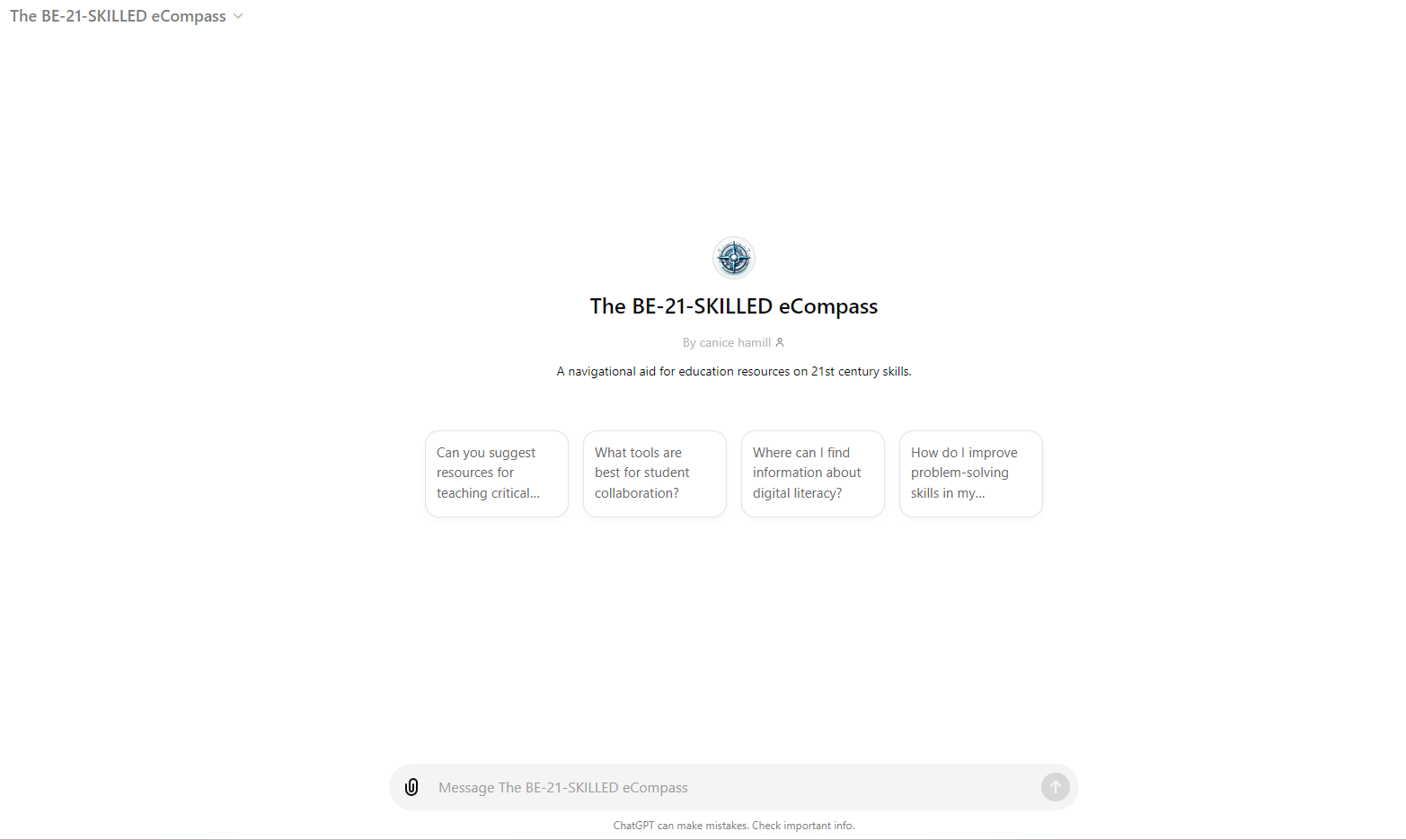To use the BE-21-SKILLED eCompass effectively, follow these simple steps:
- Understand the 21st Century Skills Categories:
- Self-management, purposefulness, perseverance.
- Critical thinking, problem-solving, systems thinking.
- Communication, collaboration, teamwork.
- Adaptability, resilience, and stress resistance.
- Creativity, curiosity, open mindset, spotting opportunities.
- Wellbeing, positive attitude, mindfulness.
- Emotional intelligence and empathy.
- Identify the Relevant Stakeholders:
- Include higher education institutions (HEIs), industry partners, and other relevant stakeholders in the process of fostering 21st-century skills.
- Leverage the Toolkit and Resources:
- Use the resources provided, such as the Regional Skill Councils Blueprint, the BE-21-SKILLED Toolkit, and the European Skills Panorama, to understand the current state of skills and the needs of the labor market.
- Implement Training Programs:
- Participate in and implement the BE-21-SKILLED Teacher Empowerment Program to help teachers instill these skills in students through training and feedback loops.
- Focus on Student Skill Development:
- Engage students with the BE-21-SKILLED Student Pilot and Playbook to enhance their employability and innovative potential.
- Support Female STEM Students:
- Improve support for female STEM students by increasing awareness among students, teachers, and employers about the importance of 21st-century skills.
- Integrate Skills into Curricula:
- Innovate and embed tools targeted at developing specific skills into existing curricula to ensure students are job-ready.
- Disseminate and Share Good Practices:
- Actively participate in the dissemination of results and good practices through the BE-21-SKILLED eCompass to ensure the broader adoption of effective strategies.
By following these steps, you can effectively use the eCompass to foster the development of essential 21st-century skills in STEM education, ensuring that graduates are well-prepared for the modern labor market.
